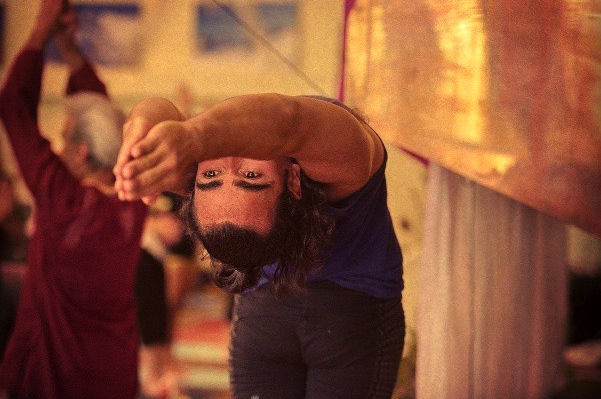
The Buddhist concept of dharma has a central philosophy that all is whole and complete as it is.
There is no accident in the entire universe. Even your reading this right now is not accidental, nor my writing it. We are together in this grand interplay of cosmic elements.
Most of the daily challenges we experience as human beings originate from a lack of understanding. Dharma is the way out of this. The way to cultivate refinement of the mind and uplift the human experience from ignorance and suffering, is to practise dharma.
What is this cryptic and mysterious notion of dharma and is there a way to decode it for modern consumption?
Dharma is a broad concept with many understandings and definitions, very much like the word “tao.” Like tao, dharma supports the natural order of the universe and those who are in harmony with it. Dharma could also be described as the nature of “what is” and in Buddhism, refers to the practice of following the Buddha’s teachings. The diligent observance and practice of these teachings, is seen as the way to enlightenment.
“There is no term in Buddhist terminology wider than dharma. It includes not only the conditioned things and states, but also the non-conditioned, the Absolute Nirvana. There is nothing in the universe or outside, good or bad, conditioned or non-conditioned, relative or absolute, which is not included in this term.” ~ Walpola Rahula
One could argue that dharma is a truth, a teaching, a practice and enlightenment itself. Seems from that definition, dharma pretty much encapsulates “everything.” I will explore this further and deconstruct a practical aspect to finding one’s dharma.
All of life is expressing itself fully according to its nature, and thusly there are no duplicates and no failures. All that is created is unique. As individuals in this perfect whole, we are all ingredients that perfectly express themselves–every nuance and character contributes to the overall manifestation. As James Hillman said (in The Soul’s Code), “You are born with a character, it is given, a gift as the old stories say, from the guardians upon your birth.”
Living in dharma means living ones’ purpose, bringing forth one’s personality and expressing it in the world. By living on the quiet, in fear, limitation, or otherwise, we are denying the world our one-of-a-kind gifts. So, too, living from the ego denies the full expression of our talents for the benefit of others. The purpose of dharma is to allow the world to evolve to its full potential.
“We know we are in dharma when we cannot think of anything else we would rather be doing with our life.” ~ David Simon
How does one relate to the seemingly mystical and intangible elements to finding one’s dharma?
Since there are no spare parts to the universe, then each individual part is needed by the whole, it is necessary, it is wanted. For the whole symphony to vibrate at its most refined and poetic, it requires all instruments to play their part. Thus, one thing is essential for the greater good–each person must follow the authentic path that is most wholly-speaking “theirs” and only theirs.
It reminds me that I am nothing, I am everything, I am here for a purpose for all, I am not here by mistake. And neither are you, my faithful readers! I am serving the whole, as are you. On this point, the words of Ralph Waldo Emerson are worthy of contemplation ~
“Standing on the bare ground…a mean egotism vanishes. I become a transparent eyeball; I am nothing; I see all; the currents of the universal Being circulate through me; I am part or particle of God.”
The whole universe supports me when I act according to my nature, my calling, my purpose, my reason for being.
Living a meaningful life requires that I live in dharma in service of the whole of creation. Dharma is an opening, a mission, a doorway, a purpose, a destiny, an active element and a passive process of surrender. Could anything be more important?
To find your dharma, here are four questions to meditate on:
- Do you know what your dharma is? Have you found it yet? Where have you looked?
- How would you live differently if you knew your days were numbered?
- Which people do you admire most and why?
- When did you have the most fun? What memories come to mind—what were you doing at the time?
Love elephant and want to go steady?
Sign up for our (curated) daily and weekly newsletters!
Editor: Renée Picard
Photo: courtesy of the author / via Flickr Commons


 Share on bsky
Share on bsky





Read 1 comment and reply